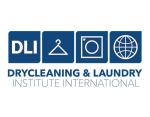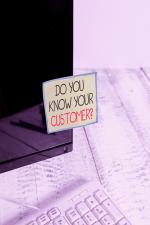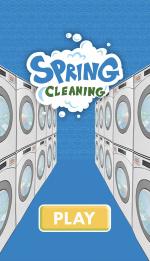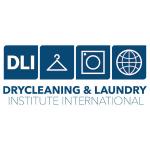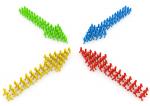CHICAGO — Gen Z, born between 1997 and 2012, will become the dominant generational economic force, and they will take that place soon. Dry cleaners looking to grow for the future need to understand what messages work best with this group, and what messages will drive them away.
These were some of the ideas presented by Lorynn Divita, Ph.D., during her online workshop, “Connecting with Gen Z — The ‘Values’ Generation,” sponsored by the National Cleaners Association (NCA). Divita, an associate professor in apparel design and merchandising at Baylor University since 2002, has seen her classes shift from millennials when she began her career into Gen Z.
In Part 1 of this series, we defined who Gen Z is, and in Part 2, we examined some of the ideas that are important to them. Today, we’ll finish by looking at the values they hold and how they can dovetail into the services dry cleaners provide.
The Key Values to Understanding Gen Z
If a business owner such as a dry cleaner can connect with some of the key values that are important to Gen Z, Divita says, that owner can build a relationship that will carry long-term rewards. So, what are some of these values?
Utility — “Do not waste their time,” Divita says. “They have absolutely no time for things that do not serve them or lack utility. But they what they see as being useful is not necessarily what we would. If they enjoy something and it makes them laugh, or they want to share it with someone and say, ‘Hey, look at this,’ that is considered to be as useful as much as something that makes them money.”
Divita believes this urge for utility is one of a dry cleaner’s biggest strengths when it comes to connecting with Gen Z.
“Do cleaners provide utility? Absolutely,” she says. “Just by operating your business, you save consumers a lot of time. Whether you're doing mainly laundering services or drycleaning services, you are saving them time.”
This utility also is fed by extending the life of their clothing.
“That means that they don't have to go shopping as much,” Divita says. “You are fixing problems, you are taking out stains, you are repairing damaged merchandise, you are hemming things for them … you are doing things for them that they literally could not do themselves, and don't necessarily want to take the time to do for themselves. So, you provide utility.”
Authenticity — “Gen Z reports that being true to their values and beliefs makes a person cool,” Divita says. “They do not care about everything looking picture perfect and in place. Gen Z really cares more about the substance and expressing their authentic inner lives, which is why you will see people put things that I think are quite embarrassing on the internet. Why would you put that you fell down? But that to them is keeping it real — it's being authentic.”
Divita believes that this desire for authenticity carries over to the brands that Gen Z wants to frequent. What do they consider an “authentic” brand?
- Brand should stand for something other than making a profit.
- Brand should help improve the world in some unique way.
- Brand should be transparent and share more about how it operates.
- Brand should keep it “real,” using real, relatable people in its communications and advertising.
So, how can dry cleaners build this sense of authenticity?
“Talk about your integrity,” Divita says, “and separate values from attitudes. Every dry cleaner I have met talks about the dignity of work and how they are so happy that they provide jobs to people. These are jobs in a safe environment. They are jobs for people where they can be useful and apply their skills.”
And, the good news Divita feels is that selling this authenticity should be no problem for most dry cleaners — it’s just a matter of saying it out loud.
“I have never met a dry cleaner who doesn’t love their employees,” she says. “You provide them with a very good job, and that’s something to be proud of. I've also never met a dry cleaner who isn't obsessed with providing their customers with quality service. Capitalize on that — you can make that your messaging.”
Gen Z also has an inherent distrust of any big business, Divita says, which works in the favor of the vast majority of dry cleaners.
“While some dry cleaners do big numbers and have 10 storefronts, that still counts as a smaller business, relative to, say, Big Pharma,” she says. “Dry cleaners are usually individual entrepreneurs, owning their business, coming to work every day, managing their employees and interfacing with their customers. And you can really convey that to them.”
Social Consciousness — Gen Z is more likely to do business with a company that not just talks about doing good in their community, but demonstrates it. This is another area where many dry cleaners shine.
“I'd bet every one of you does something,” Divita says. “You either sponsor a little league team, or you give away dry cleaning to school raffles and fundraisers. Every dry cleaner I know is a good local community servant.”
The key to connection, again, is simply letting people know what you are doing.
“How do you care about people rather than just profit?” Divita asks. “I’m sure you all donate to local school fundraisers. I'm sure you sponsor kids’ sports teams, or maybe you give your employees a day where you all go down and serve at the soup kitchen. Maybe you have coat drives or food drives. Whatever you do, make this known — let them know you do good things.”
Making the Connection
For dry cleaners wanting to connect with Gen Z, they might have to provide education into exactly what it is they do, and why it’s important, Divita says.
“Gen Z is in desperate need of understanding how to care for their clothing,” she says. “They really are lacking in this basic skill. Gen Z did not grow up observing their mothers and grandmothers doing the laundry. This is information they are clamoring for.”
Divita points to a recent survey on talker.news which found that 65% of millennials and Gen Z believe laundry is a skill that needs to be taught or learned. The survey also found that 45% of these groups reported learning how to do laundry by parents or older relatives, 23% through experimentation, 19% from social media tutorials and 43% from YouTube videos.
“YouTube actually beats out parents and older relatives by 1%,” Divita says.
This is an avenue that dry cleaners can use to not only provide a valuable service, but set themselves up as the trusted professional that can get their jobs done.
“You could do tutorials,” Divita says, “or you could even post videos with different stains asking ‘Will it come out?’ You can make before-and-after videos of wrinkled shirts or sheets and how beautiful they are when they come out. Make videos of you taking out a stain. There is so much room for you to create content.”
The great thing about providing this service is that it is something dry cleaners can do immediately, using the phones in their pockets.
“Traditional barriers to having a platform are gone,” she says, “so if you’ve got a young person in your orbit — a kid or grandkid or even a young employee — ask them to make a video or post and see what happens. Anything is possible.”
For Part 1 of this series, click HERE. For Part 2, click HERE.
Have a question or comment? E-mail our editor Dave Davis at [email protected].








